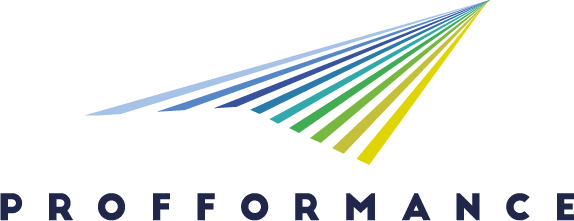Blog to Grow
Opening Higher Education to a Public Audience
- 01 - Education
- 04 – Business, administration and law
- 06 – Information and Communication Technologies
2. Innovative teaching and learning
- Student partnerships/engagement in the teaching and learning practice
- Differentiated instruction - promoting diversity of materials and learning styles
- Online and offline cooperative and collaborative work – developing engaging dynamics in the learning process
- Innovative methodology to keeping motivation and attention during online lectures
- Case-based teaching, case study – object of study to put into practice the knowledge acquired through a real, fictitious or adjusted description/case of reality.
The innovative aspect of the learning design “Blog to Grow” was to support knowledge sharing with peers, experts, and researchers in the field of human resource management outside the study programme as a means for professional competence development. Students were encouraged to develop a sound and safe online identity. They were introduced to the basic mechanisms of professional online communities and had the chance to develop and test their online identity in a safe space. The learning design followed a highly individual, learner-centred approach, allowing students to choose how much and in which way they want to share their experiences, reflections, and their knowledge with others. An important aspect of the learning design was that students were able to gain first-hand experience of the benefits of sharing knowledge online for their professional competence development, but also self-marketing and employer branding activities. In terms of instructional design, the learning design was based on a backwards-design approach, ensuring constructive alignment through agile implementation of the learning design. Intended learning outcomes were identified and suitable learning activities were suggested and continuously, collaboratively adapted to the students' prior learning experiences and learning progress. Step-by-step, students were introduced into an online, asynchronous communication culture. The main outcomes of the participative learning design: * All 19 students reached the intended learning outcomes * More than 100 tweets commenting on the blog carnival on Twitter * Approx. 550 views at the public blog carnival website between December 2019-February 2020. * All 19 students started a blog and published their first blog post. Some of them made it accessible to the public, others decided to share it with selected individuals. * 14 public contributions to the blog carnival: 8 blogposts were contributed by students who decided to share their blogposts with the public and 6 blogposts were contributed by external experts and professionals in the field of HRM. * Based on the popularity of the #PKNM10 blog carnival in the online HR community, learning coach Isabell was invited to speak at a face-to-face event of the XING HR community in Vienna. Isabell presented the learning design "Blog to Grow" and its relevance to HR. The face-to-face event was a possibility for the students of the online study programme to meet their peers and other HR professionals.
Methodology
Tools, equipment, technology used
Outcomes and outputs, main results
Lessons learnt
Adaptability and sustainability of the best practice (for other institutions)
Promotion of best practice
Scope and impact
- Course/department level
- National level
- EU/EHEA/International level
6.1 Digitalization
- Outstanding, innovative, excellent practices of online / blended / hybrid learning
- Innovative, novel methodology in using digital tools/devices in teaching
- Digital skills development and assessment both general and profession-related, embedded in course design, in teaching and assessment
- Digital scientific sources used in T&L
- Data security and responsible digital presence embedded in learning outcomes
Reasoning: "Blog to Grow" is an example of how to introduce students to the world of online networking and knowledge sharing by contributing to a blog carnival. Students were prepared to develop their first blogposts through an interactive coursebook and various activities to support competence development. Through the introduction of this kind of knowledge-sharing culture, a learner community was established at the start of the fully online study program. Students developed digital & disciplinary skills.
6.2 Internationalization
- Outstanding practices of international online collaborative learning
- International projects/research results embedded into course development and T&L
Reasoning: "Blog to Grow" was designed for a learning community in a fully online study program. Students were geographically separated in different parts of Austria and Germany. Furthermore, also the external participants of the blog carnival were living in Austria, Germany, or Switzerland. Results from the TEMPUS and the ApprEnt project were applied: Developing constructive alignment, writing transparent learning outcomes, mentoring for professional competence development.
6.3 Inclusion and diversity, universal design
- Inclusive course design, universally designed divers activities to meet special students' needs
- Innovative teaching methodology for inclusion and meet diverse student needs
Reasoning: The learning design was tailored to the diverse needs of adult learners with full-time or part-time jobs and care-work responsibilities in their families. Diverse student needs were met through a flexible learning design, which included individual coaching sessions when needed and establishing trust and rapport between the learning coach and the students.
6.4 Sustainability
- Special courses reflecting to UN 2030 Sustainability goals, Green Deal - mini-courses, microcredentials
Reasoning: "Blog to Grow" addresses the UN 2030 sustainability goal No. 4 "Quality Education" as it opened the higher education module to practitioners and experts in the field outside of the university, encouraging them to participate in a blog carnival (basically an assignment) hosted in the context of a university course. Often, adult learners are unaware of the depth and variety of their prior learning. "Blog to Grow" gave a chance to get in touch with higher ed, and to see that they could fit in.
3.3 Public contact datas
| Name | Email address | Website |
|---|---|---|
| Isabell Grundschober | isabell.grundschober@donau-uni.ac.at | https://isabellgru.eu/index.php/2019/11/22/pknm10-blogparade-soziale-netzwerke-blogging-und-hr/ |

